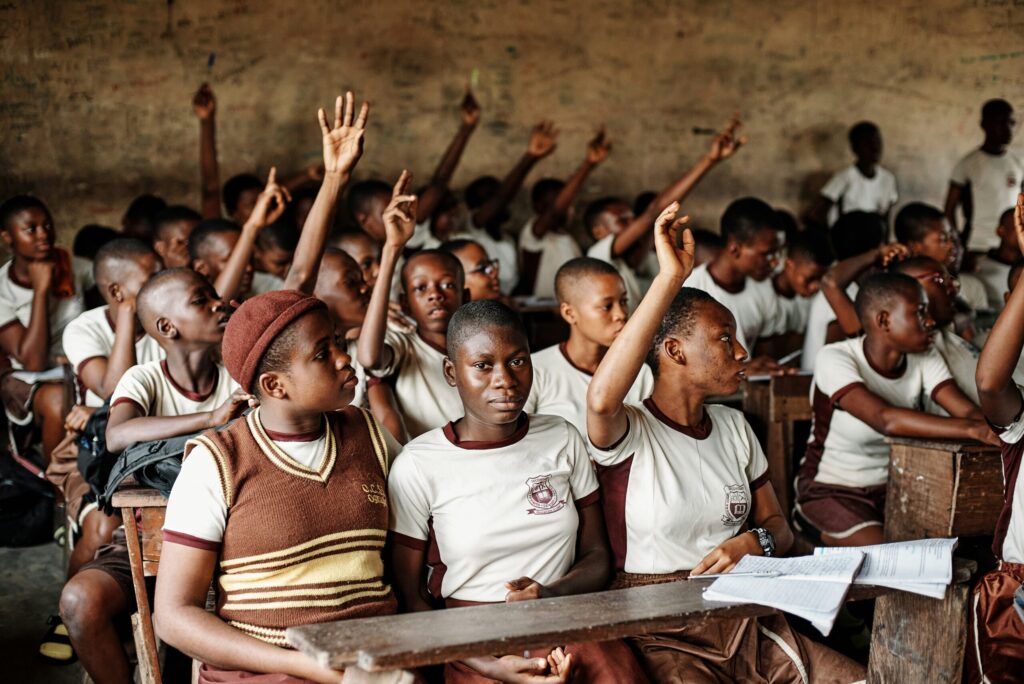Education is the passing on of knowledge, skills and character traits. This is done formally by following a curriculum within a structured institutional framework such as a school. It is also done less formally in which a structured format is followed outside the formal schooling system. Finally, it is done informally by the accumulation of learning through daily experience.
The basic aim of education is to socialise children by inculcating cultural values and norms, and to equip them with the skills they need to become productive members of society. Achieving this brings economic growth and a general understanding of local and global problems.
As is the case in every sector, institutions are responsible for directing education. In Nigeria the Federal Ministry of Education is in overall charge and local authorities are responsible for implementing state policies regarding public education and state schools.
Nigeria operates the 6-3-3-4 system which divides schooling into kindergarten, primary, secondary and tertiary education.
In recent years Nigeria has made remarkable progress in the education sector, including:
1: The introduction of the Universal Basic Education program. This aims to provide free, basic education to every child. This has helped to reduce the number of out-of-school children and facilitated progress in reducing the gender gap. According to the United Nations, primary school enrolment has increased from 57% in 1999 to 71% in 2018.
2: The Education Ministry launched the Tertiary Education Trust Fund which provides funding for research and development in Nigerian universities, polytechnics and colleges of education.
3: Also worth mentioning is the recent introduction of the National Education Loan Fund which pays the school fees of university students and provides them with a monthly stipend.
Yet despite these laudable efforts the education system remains backward and in disrepair for the following reasons :
Poor Funding
The Nigerian Government has not allocated enough resources to education. This has resulted in lack of basic facilities in schools, poor teacher welfare, and inadequate instructional materials. The Government allocates only 7% of the national budget to education as against the UNESCO recommended minimum of 26%.
Poor Infrastructure
Many schools lack basic facilities like classrooms, laboratories, libraries and even furniture for students to use.
Poor Teacher Training and Poor Pay
Many teachers do not receive proper training to teach and there is a shortage of teachers. Moreover, teachers are not paid well.
Corruption
Corruption has led to the mismanagement of education funds which has further worsened matters.
Poor Policy Implementation
Despite having promulgated good policies geared towards improving the education system, poor implementation – and sometimes a lack of implementation – has worsened matters.
Conclusion
The Government and the Ministry of Education should address these problems by providing adequate funding, good infrastructure, professional teacher training and adequate remuneration for teachers. Moreover, curbing corruption and implementing policy effectively would solve the problem of poor education delivery and ensure that Nigeria can compete in the global economy.
One last but important point. It is necessary that all education stakeholders – including parents, teachers and students – should join together to bring about the desired results.


